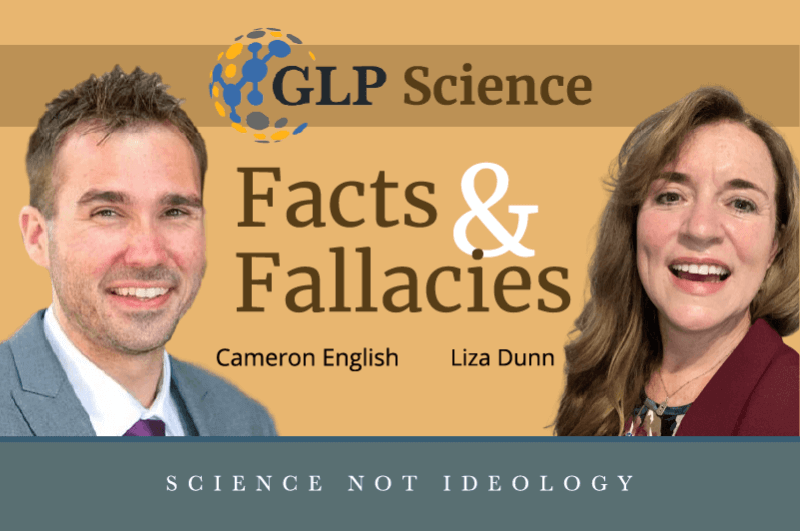Podcast:
Podcast: Play in new window | Download
Subscribe: RSS
Video:
Join hosts Dr. Liza Dunn and GLP contributor Cameron English on episode 234 of Science Facts and Fallacies as they break down these latest news stories:
Should you cut carbs to lose weight? Will saturated fat give you heart disease? Are fresh vegetables better than their frozen counterparts? No, no, and no. These and many other nutrition myths circulate endlessly online. Let’s take a closer look at 10 of the most-common beliefs about the nutritional risks and benefits of the foods we eat every day.
Any technology is capable of doing great good or terrible evil, and language models like ChatGPT are no exception. While these powerful tools can be used to aggregate and disseminate enormous amounts of useful information, they can be abused by bad actors who want to spread nonsense, too. Some experts are especially worried about anti-vaccine advocates using AI-powered tools to confuse parents about the risks and benefits of immunization. How do we prevent such fringe voices (or anybody else) from misusing these rapidly evolving innovations?
CRISPR gene editing is a powerful technology with a lot of promise. It’s already been used to enhance the food we eat and treat certain types of inherited blindness, to cite just two examples. Researchers are now exploring the technology’s potential to cure mental disorders like autism and depression. It’s a potentially life-changing application for genetic engineering, but one fraught with serious ethical concerns that can’t be easily addressed. Can we responsibly use CRISPR in these circumstances, or has our techno-inspired hubris finally gotten the best of us?
Dr. Liza Dunn is a medical toxicologist and the medical affairs lead at Bayer Crop Science. Follow her on X @DrLizaMD
Cameron J. English is the director of bio-sciences at the American Council on Science and Health. Visit his website and follow him on X @camjenglish































